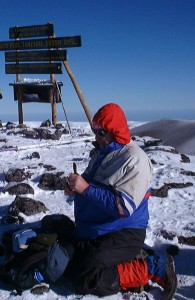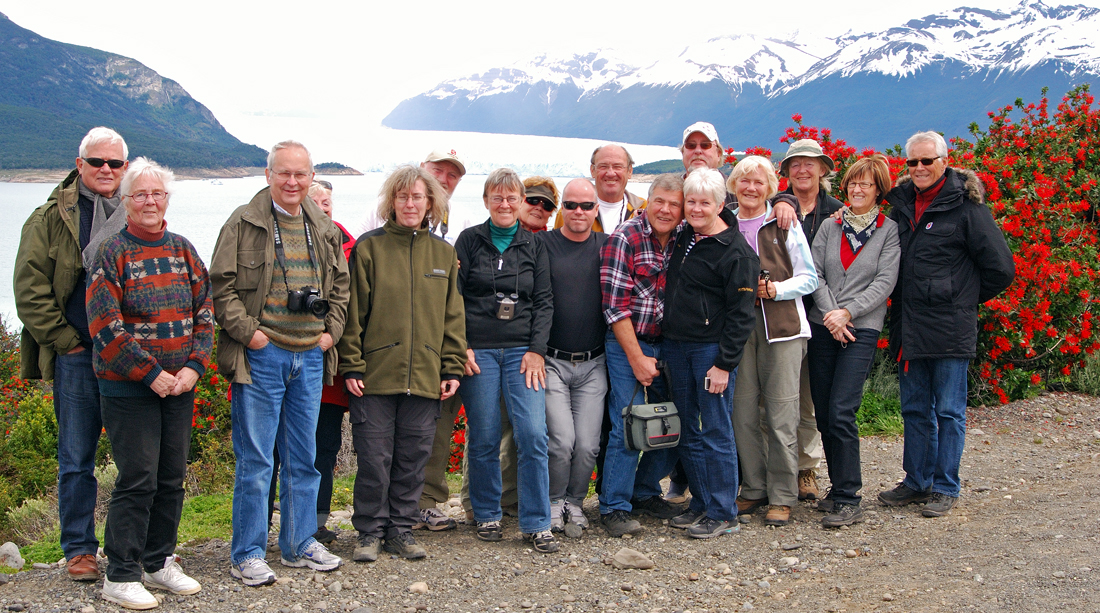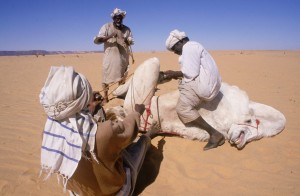What is a proper Expedition? Are there any guidelines? It is a question which comes up for air more often than ever. There´s no doubt that the name Expedition is misused today, especially in media, who calls pretty much everything moving an Expedition. I personally have an acquaintance in Exploration who calls pretty much everything an expedition, almost when he goes to the toilet. Which is fine for me. For him it is an Expedition. For me, however, I think anything below 6 months of hard travel, isn´t an expedition. But, there are no set rules what constitutes an Expedition, officially, but Explorers Club for example, only gives their honorable Flag to expeditions they deem scientific, no matter length of time or difficulty. It is a sensitive issue, for sure, but I think it should only be discussed by people who actually live on doing expeditions, not the opinionated arm chair travelers or jealous wanna bees. I get some kind of opinion every week on the issue, sometimes I am really sad, see this for example. But, do also read the 23 comments, for the issue really, is, what is exploration? Who can call him or herself an explorer? What is the difference between advanced travel, an adventure and exploration? It is the second most read blog report I have written, which shows the sensitive side of things. I just want to add that the two British subjects attacking me, one is a woman I met in Yemen, who herself wants to do Expeditions….the other her male friend. Such is life. Everyone has the right to have an opinion!
But the reason I bring the issue up is that the other day I helped a couple of very good friends to look for participants for a very interesting Skeleton Coast expedition they´re setting up. I posted it on various Expedition sites I knew of and immediately got an angry answer:
“Appearently this is a for-profit pay your own way “adventure vacation” venture, not an expedition. Don’t you hate it when the adventure travel industry abuses the term expedition to sell empty positions. if you can get enough people to pay the 25 pound processing fee, you can make a tidy profit even before you pick the people who are willing to pay for a position. Mikael, you are damaging your reputation by having your name associated with this type of ethically challanged practice.”
My friend, Andy, one of the organizers, gave a very good answer, worth reading to understand the difficulties at putting any type of Expedition together:

Hi Mikael,
We had ill informed people commenting like this about the first expedition, and people saying it was not a first and that lots of people had walked the route we were doing. I am afraid it all came down to ignorance, and I got quite annoyed with it all in the end, I didn’t have the time or energy to answer everyone. All the expeditions we investigated were supported in one way or another, or went inland far enough to reach water, we were the only unsupported coastal expedition ever!!!
As to this “for-profit pay your own way comment”, this is ignorance again i’m afraid, these people have never tried to organise a large world first expedition that is being filmed for television. If this expedition is for profit please could they tell us where the profit is, and who is getting it because I think it is very unfair that someone is getting this profit and not us !!!
The truth of the matter is that the first expedition cost so much to organise that the £5,000.00 we charged each member was not anywhere near enough money to cover the expedition, and Jason and myself almost went bankrupt because of the expedition, that is why we have charged more this time! I spent 4 years in total organising, researching, planning and getting the necessary permissions to allow us to do the 2009 expedition, and I didn’t get any money at all for any of this time. The only money that anyone got out of the 2009 expedition, or will be getting out of the 2010 expedition, is a very modest fee for all the administration time, and money to cover the organisers mortgage and expenses whilst away.
If this person who commented on the £25 registration fee, thinks the sum of £300 is a tidy profit between two people for 3 months work, then quite frankly he needs his head examined!!!
I am sorry if I sound a bit aggressive, it is not my nature, but I feel very angry about these comments. These expeditions have proved to be an unbelievable amount of work for a tiny amount of money (you only need to ask my wife!)
The reason for all this work is that there is no precedent to copy or base anything on, no-one has ever done anything like this before, it is difficult for people to understand this because most people don’t really understand what we are trying to achieve or how incredibly challenging it is! Everyone has heard of climbing Mount Everest, or walking to the South and North Pole, but no-one thinks walking along a coastline sounds very difficult or challenging at all.
Perhaps it is only when you have done this type of expedition that you can really appreciate what an unbelievable challenge it was, even for a very experienced Arctic and Antarctic explorer like Jason De Carteret.
Anyone hope this is enough information for you to answer this sort of comment.
Andrew.
Excellent answer in my opinion. However, it is a good question! How to define an Expedition?
I would very much like to have an opinion from you readers, no matter what you do for a living, on the subject, what constitutes a proper expedition?



In theory, it involves a geographical journey, often (but not necessarily) with physical hardship, but that definitely has a defined objective that aims to improve our understanding/knowledge of the world (preferably in a structured way).
In practice, it’s the name a certain community of people give their projects and journeys when they need external funding to make it happen! Ooh, how cynical of me.
To which I would add that the audience is also important. The terms expedition, exploration and explorer have romantic connotations that are still useful for inspiring a youth audience to find out more about their world.
Michael, it is a question of many parts and as many answers. I’m certain it means many things to many people – firstly you would have two strands, an answer firstly from people who take part in “expeditions” and secondly what it means to the general public.
For those that are apoplectic about paying to participate in an expedition I say look to history where this has always been the norm, if not the participants then who should foot the incredible costs of some of these amazing journeys?
It is difficult to define Michael. For me, the last Explorer was Wally Herbert. After that we have been guides, tourists and sportsmen. So I never use the title polar explorer For most people, an expedition is everything that sounds exotic or difficult. And who should define what constitutes an expedition. Is the term expedition a for scientists that sleep in heated tents or houses, or for the blind guy who walks 1000 km on skiis. Who cares what thepoles or Explorers Club thinks. The “adventure” and “expedition” world is full of big egos and people who spend more time talking than doing. Be true to yourself and generous with others. I will invite you all to become members of World Adventurer Association later this year. It is up to you to define what adventure is 🙂
Really interesting and this debate seems to be bouncing around a lot at the moment – good collection of opinions on the blog. I agree with Jamie – please feel free to copy and paste mine from blog or FB – I also agree with Jamie that the use of the word to inspire young people by creating a link between their ‘trips’ and traditional exploration and expeditioning is a great thing!
Interesting post. I think we can separate an expedition from lets say an ‘adventure’, based on the extensive and detailed planning required.
As for the commercial associations, there are very few people who have the time, and the money to go on expeditions. I would much rather more people were involved in expeditions than it be an eliteist past-time.
So there is a place for paid expeditions. However, they do need to retain their authenticity of purpose:
Are they of benefit to anyone other than the participants?
And do they retain the very noble aim of unifying cultures, as opposed to collecting trophies and badges of honour?
With the six month rule, I’m not sure 5 months of hard travel couldn’t qualify. Interestingly, a colleague of mine had a rule he insisted on: Don’t use the phrase “When I…” if you are introducing a place you’ve been should the trip have lasted less than a month; if you do, you’d just be telling “When I” stories!
Keep up the posts Mikael!
this is an excellent question and one I certainly don’t have the answer for. I have heard people refer to our bike journey from Alaska to Argentina with kids as an expedition – I tend to call it a journey. I tend to think of expeditions as climbing Everest or hiking to the poles, but I have no idea why I think that.
Maybe an expedition should be attempting some major feat that has never been done before – but that would mean we would quickly be coming to end of expeditions.
Anyway, whatever the definition, I wish you well in your endeavors!
Nancy
http://www.familyonbikes.org
A fine can of worms here!
Personally, I think the word ‘expedition’ is almost as devalued as the word ‘adventurer’ nowadays. There are plenty personal challenges to be had ‘out there’ – you can find one to suit whatever level of hardship you fancy – but precious few real expeditions any more. I agree most closely with Jamie Buchanan-Dunlop’s first paragraph, by way of definition. Nancy, of Family On Bikes, calls their journey – a journey!
Laura Dekker is about to set off to sail around the world solo, hoping to be the youngest person ever to do so – and may good fortune attend her! – a huge challenge but not in any way an expedition.
I don’t even regard treks to the poles as expeditions any more, though the first ones certainly were. Ditto the first ascent of Everest.
There are no places on the earth’s surface that are unexplored, but there could still be scientific expeditions to some. For the rest, it is the ocean depths or outer space, because, let’s face it we have been born too late for great terrestial expeditions!
That’s the first topic I tackled in my book Climbing: Expedition Planning. The section is too long to quote in it’s entirety here but a few common traits I identified include : a precise objective, responsibility to others, extended duration, and remote location. It only take 2 to 3 months to climb Everest or K2 but I think most people would agree that it’s a expedition when you do it yourself and a “guided trip” when you just write a check and go along.
Well baste my steaming puddings!
Now, in what possible world does an adventure or expedition require verification?
In what universe (whether supported by turtles, sponge cakes, badminton rackets or rubber buttons) does it say that you cannot use this title unless you walked bared footed, and in nothing but your soiled skiddies, to the South Pole or climbed Everest wearing nothing but Jamie Oliver and half an orange.
Perhaps true expeditions did die out years ago. Since then, maybe we’ve made as much ground as an asthmatic ant with a heavy load of shopping but I do believe there are a few expeditions around today that can rightly claim the title and I think they deserve it.
The other factor delicately touched on here is the use of the word to inspire young people by creating a link between their ‘trips’ and traditional exploration and expeditioning is a great thing. Adventure and exploration, adventurers and explorers are great words.
We should not attempt to muzzle and gag these words or titles. The world leaders in adventure and exploration and the long extended journey have tried for years to expand our horizons and bring a spark of information to our dim worlds and it shouldn’t be wasted or silenced and suppressed or categorized.
We will never find an answer here that we all agree on but it is great to talk about turtles, sponge cakes, badminton rackets or rubber buttons. Isn’t it?
An interesting and difficult question. For me, an expedition is adventurous travel that contributes something, beyond personal experience, to society or scientific understanding for example…. the adventure is a by-product rather than the primary objective. Exploration involves adventurous travel which goes through previously unknown or undiscovered regions…. perhaps by my definition, the age of exploration (on earth at least) is over… I could probably go on all day about this and no doubt many will disagree with me!!
Years ago it was a term given over to scientific or geographical based treks. Many were not ratified unless relevant scholarly bodies approved. Today we have dumbed down values. In the genre of travel, expedition, explorer, adventurer, luxury and concierge are the most abused terms.
Discussing many so-called ‘expeditions’ – when you factor support trucks, back-up teams, tv/media and anything else coming, most leitmotifs can be executed without much trouble – aside from the ice caps, mountains and deserts. They are still the greatest levelers.
David Grant correctly touches on the understanding of the meaning of these words… and planet Earth has pretty well been covered. ‘Firsts’ today depend on the leitmotif – nothing else.